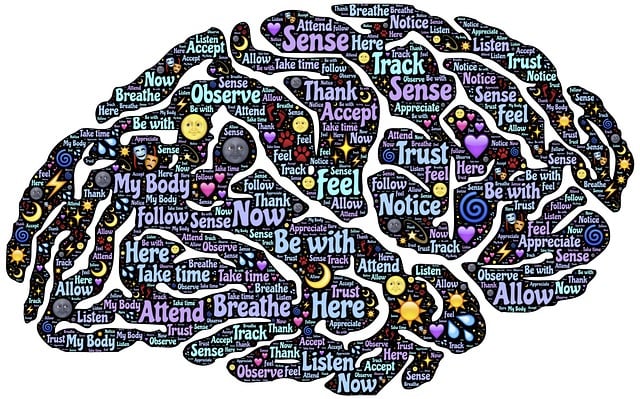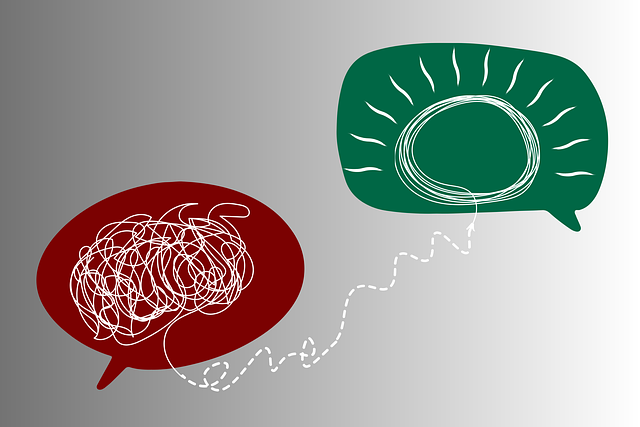Chronic stress, a prolonged state of elevated stress levels, can lead to serious mental and physical health issues. Recognizing its signs is crucial for implementing effective stress reduction strategies like Parker Chronic Illness Therapy, which focuses on mood management, emotional regulation, and self-awareness exercises through CBT techniques. This approach empowers individuals with positive thinking, coping strategies, and resilience to manage chronic illnesses, enhance well-being, and navigate life's challenges. Mindfulness practices, lifestyle changes, and innovative techniques like Mind Over Matter principles and social skills training further contribute to effective stress reduction.
Stress reduction is a vital component of maintaining good mental health, especially in managing chronic conditions. This comprehensive guide explores effective strategies to combat stress, focusing on Cognitive Behavioral Therapy (CBT), a proven Parker approach. We delve into mindfulness practices for daily relaxation and resilience, along with lifestyle changes tailored for improved well-being. Discover additional techniques and resources to navigate and overcome stress, offering valuable insights for those seeking a healthier, more balanced life.
- Understanding Chronic Stress and Its Impact on Health
- Cognitive Behavioral Therapy (CBT): A Parker Approach to Stress Reduction
- Mindfulness Practices for Daily Relaxation and Resilience
- Lifestyle Changes for Better Mental Well-being
- Additional Techniques and Resources for Effective Stress Management
Understanding Chronic Stress and Its Impact on Health

Chronic stress refers to a prolonged state of elevated stress levels, often triggered by ongoing challenges or situations that an individual perceives as overwhelming. Unlike acute stress, which is a normal reaction to short-term threats and helps us respond quickly, chronic stress can have detrimental effects on both mental and physical health if left unaddressed. Prolonged exposure to stressful conditions leads to a constant activation of the body’s stress response system, resulting in heightened hormone levels and continuous wear and tear on various bodily systems.
This persistent state of stress is linked to an increased risk of developing chronic illnesses, such as heart disease, diabetes, and mental health disorders, including anxiety and depression. The impact of chronic stress on health is multifaceted, affecting everything from sleep patterns and immune function to cognitive abilities and emotional regulation. Recognizing the signs and understanding the mechanisms behind chronic stress is a crucial first step in implementing effective strategies for stress reduction, such as those offered through Parker Chronic Illness Therapy, focusing on mood management, emotional regulation, and self-awareness exercises.
Cognitive Behavioral Therapy (CBT): A Parker Approach to Stress Reduction

Cognitive Behavioral Therapy (CBT) offers a structured and effective approach to stress reduction, often referred to as Parker Chronic Illness Therapy when tailored for long-term health management. This therapeutic method focuses on identifying and challenging negative thought patterns that contribute to stress and anxiety. By replacing these with more positive and realistic thoughts, CBT empowers individuals to develop inner strength and resilience.
The core principles of CBT revolve around the concept of mind over matter, encouraging individuals to take control of their emotional responses. It teaches practical strategies for coping with stressful situations, fostering a sense of calm and enhancing overall well-being. This approach has proven particularly beneficial for managing chronic illnesses, as it equips individuals with the tools to navigate challenges, promote positive thinking, and maintain a proactive mindset, ultimately contributing to improved mental health and quality of life.
Mindfulness Practices for Daily Relaxation and Resilience

Mindfulness practices have emerged as powerful tools for daily relaxation and building resilience, especially beneficial for individuals navigating chronic illnesses. Incorporating mindfulness into daily routines allows one to cultivate a sense of calm and emotional intelligence, enabling better management of stress and mood. Techniques such as meditation, deep breathing exercises, and mindful movement can help reduce anxiety and enhance overall well-being.
For those seeking additional support, crisis intervention guidance is readily available through Parker Chronic Illness Therapy. This therapeutic approach encourages individuals to develop coping strategies tailored to their unique experiences, fostering a sense of control and empowerment. By integrating mindfulness with professional support, people can effectively manage stress, improve mood regulation, and enhance their overall ability to cope with life’s challenges.
Lifestyle Changes for Better Mental Well-being

Adopting lifestyle changes can significantly impact mental well-being and serve as a powerful tool in managing stress, especially for individuals navigating chronic illnesses. The Parker Chronic Illness Therapy approach emphasizes holistic care, encouraging patients to embrace healthy habits that promote emotional resilience. Simple yet effective strategies include regular exercise, which releases endorphins known to boost mood and reduce anxiety. Additionally, prioritizing quality sleep through consistent routines and creating a balanced diet can foster a sense of control and overall calm.
Building empathy within social circles is another key aspect of stress reduction. Public awareness campaigns that promote understanding and support for mental health issues play a vital role in fostering empathetic environments. Emotional intelligence, the ability to recognize and manage one’s emotions and understand others’, is also crucial. By integrating these strategies into daily life, individuals can enhance their coping mechanisms, leading to improved mental well-being and better stress management.
Additional Techniques and Resources for Effective Stress Management

In addition to conventional methods like exercise, meditation, and therapy, there are numerous innovative techniques for stress reduction that can significantly enhance one’s well-being. Incorporating Mind Over Matter Principles into daily routines empowers individuals to reframe negative thoughts, fostering a sense of calm and resilience in the face of stress. For instance, cognitive-behavioral therapy (CBT) taught by professionals like those at Parker Chronic Illness Therapy helps individuals challenge and change unhelpful thought patterns.
Furthermore, Conflict Resolution Techniques and Social Skills Training play pivotal roles in managing stress related to interpersonal relationships. Effective communication strategies, empathy building, and assertiveness training, accessible through specialized programs or online resources, can help navigate challenging social interactions with ease, reducing stress levels. These additional tools provide a holistic approach to stress management, catering to diverse needs beyond conventional practices.
In conclusion, managing stress effectively is paramount for maintaining optimal health. By understanding the profound impact of chronic stress, individuals can empower themselves with various reduction methods. Cognitive Behavioral Therapy, in particular its Parker approach, offers a structured path to reframing negative thought patterns. Incorporating mindfulness practices and lifestyle changes further enhances resilience. Combining these techniques with additional resources enables people to navigate life’s challenges with greater ease, fostering better mental well-being. Remember that stress management is a personal journey, and finding the right combination of strategies is key to thriving in all aspects of life.














